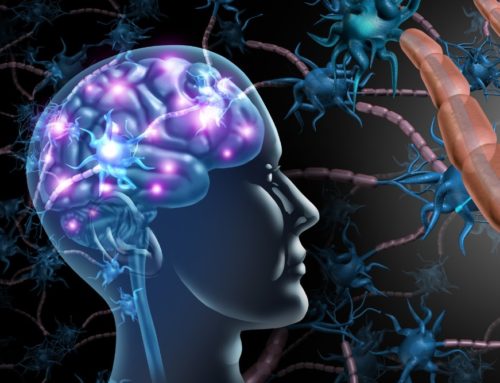Electrolyte Imbalances – Symptoms and Complications
Healthy foods and drinks contain minerals called electrolytes, which our bodies absorb to help manage vital functions. Too few or too many cause an electrolyte imbalance, disrupting our inner workings and resulting in various health problems. Most imbalances are mild and often treatable with water and other fluids or dietary changes. If uncorrected, severe health conditions could occur, some of which are life-threatening without immediate intervention.
If your levels are too low, electrolyte replacement therapy may be required, including supplements, medication, or IV therapy. To remove excess electrolytes, oral or IV fluids or medication are also recommended, or dialysis for extreme cases. Your doctor will determine the best treatment for your condition. Of course, learning the symptoms of such imbalances helps you avoid the issue altogether.

Common Symptoms of Electrolyte Imbalances
The main electrolytes our bodies require include sodium, calcium, bicarbonate, potassium, phosphate, chloride, and magnesium. Together, these maintain and regulate most of the body’s functions.
Unfortunately, medications, vomiting, heavy sweating, improper fluid intake, or illness can alter electrolyte levels. When these occur, our muscles, digestion, cardiovascular system, and neurological functions are often altered. The following cover the most common symptoms to watch for.
Muscle related signs
Several essential electrolytes are necessary for muscle function. When dealing with an electrolyte imbalance, your muscles suffer in several ways. For instance, studies show abnormal electrolyte levels result in muscle weakness, spasms, and cramping. Muscle contractions slow, as does the development of muscle tension.
It may be tricky to determine the cause of muscle-related signs. Several altered electrolyte levels are crucial for muscles, including calcium, sodium, potassium, and magnesium. Any alterations in these levels could disrupt muscle functions.
Neurological and cardiovascular
The brain requires precise ion levels to maintain neurological functions. When dealing with an electrolyte imbalance, you may experience several possible symptoms. For instance, sodium regulates fluid levels, so altered levels could result in brain swelling or contractions. Other signs include headaches, confusion, sleep disruptions, and altered speech.
Cardiovascular functions are also disrupted by improper electrolyte levels. Symptoms include altered heart rate, blood circulation, and respiratory functions. Anything related to the heart or lungs could be fatal if untreated, so report any signs to your doctor.
Gastrointestinal
A few electrolytes are required for proper gastrointestinal functions, including sodium, magnesium, and bicarbonate. Imbalances of these and other electrolytes cause a few uncomfortable symptoms. You may experience nausea and vomiting, making it difficult to regain those ions if you can’t keep anything down.
Bowel issues are also gastrointestinal disruptions from altered electrolyte levels. Some issues include diarrhea and constipation, which depend on how low or high the levels reach. Abdominal discomfort and pain may also occur.
Severe symptoms and complications
Mild electrolyte imbalances cause uncomfortable symptoms but are usually easy to manage with dietary changes. But ignoring those signs could result in severe complications you may not expect.
In fact, extreme electrolyte imbalances could even be life-threatening. You may experience seizures, respiratory failure, paralysis, hypoventilation, arrhythmia, cardiac arrest, and coma. Since many of these symptoms could result in death, it’s best to seek treatment for even the mildest symptoms.
Diagnosing electrolyte imbalances typically involves a combination of clinical assessment, laboratory tests, and sometimes imaging studies. Blood tests are the most common and direct way to diagnose electrolyte imbalances. They measure the levels of key electrolytes in the blood, such as sodium, potassium, calcium, magnesium, chloride, and bicarbonate. Abnormal levels can indicate an imbalance.
Urine tests can also help determine electrolyte levels and kidney function. These tests measure the concentration of electrolytes in the urine and can provide insight into how well the kidneys are regulating these substances.
You doctor may conduct a physical examination to look for signs and symptoms of electrolyte imbalance. This can include checking for dehydration, muscle weakness, abnormal heart rhythms, and neurological symptoms.
In certain cases, more specialized tests may be needed, such as hormonal tests to check for endocrine disorders that can affect electrolyte balance, like adrenal or thyroid dysfunction. Keeping track of symptoms over time can help identify patterns and triggers related to electrolyte imbalances. Symptoms like muscle cramps, fatigue, confusion, and irregular heartbeat can provide clues.
Resources:
- Medline Plus, Fluid and Electrolyte Balance https://medlineplus.gov/fluidandelectrolytebalance.html
- NCBI, September, 1994, Electrolytes and their relationship to normal and abnormal muscle function https://pubmed.ncbi.nlm.nih.gov/7854827/#:~:text=Certain%20disease%20states%20cause%20abnormal,as%20muscle%20weakness%20or%20cramping
- Diringer, 2017, NCBI, Neurologic manifestations of major electrolyte abnormalities https://pubmed.ncbi.nlm.nih.gov/28190443/#:~:text=Hypomagnesemia%20and%20hypocalcemia%20can%20lead,magnesium%2C%20calcium%2C%20and%20phosphate
- Cleveland Clinic, Electrolyte Imbalance https://my.clevelandclinic.org/health/symptoms/24019-electrolyte-imbalance
- Circulation Part 10.1: Life-Threatening Electrolyte Abnormalities 28 Nov 2005 https://www.ahajournals.org/doi/full/10.1161/CIRCULATIONAHA.105.166563
This article contains informational and educational materials and does not replace health or medical advice. For questions or concerns regarding your medical condition or health objectives, speak to a qualified physician or healthcare provider.






Leave A Comment